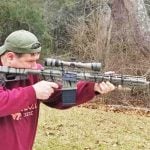GunMag Warehouse’s Jeremy Stone is back with another entertaining and information-packed Mag Life Podcast. This month, Jeremy sits down with YouTube gun guy and real-life cop, Milspec Mojo. Mojo is widely known as one of the top firearms guys on the internet, especially when it comes to fundamentals. Those fundamentals translate into lightning operations skills, meaning that he’s a good resource to watch if you want to improve your shooting and gun handling.
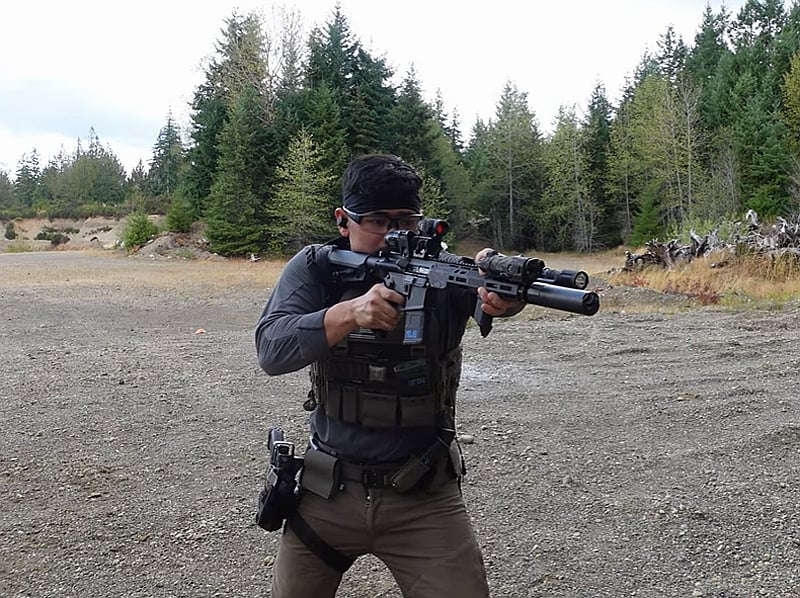
Instagram and Garand Thumb
Mojo started off on Instagram, where he is still very active, but his YouTube channel took off when he started working with YouTube icon, Garand Thumb. As he got further into the training aspect of firearms, Mojo found that he has a knack for teaching. He loves training other people and has developed a style in which he and his friends actually train one another, even if he is the impetus behind it all.
Jeremy agrees, talking about how much fun he had at his earlier session with Mojo and his team. Mojo says it’s important to train with likeminded people who want to get better. Surround yourself with folks like that and you’ll get better. That leads to the experience of everyone training everyone. Jeremy agrees that most people want that kind of situation.
Jeremy observes that not all cops train regularly. Mojo says that it is a problem in the law enforcement community, but he qualifies that by saying he’s not married and doesn’t have kids. If that happens down the road, his priorities may shift.
Mojo also says that, while shooting is an important skill for law enforcement officers, other skills are also very important and maybe even more so. He talks about social skills like talking to people and making your point without sounding like a jerk. De-escalation and talking your way out of a gun fight. Defensive tactics and being physically fit are also big. All those together are probably more important for a cop than pulling a trigger, but he also says that pulling the trigger is a skill that cannot be allowed to lapse.
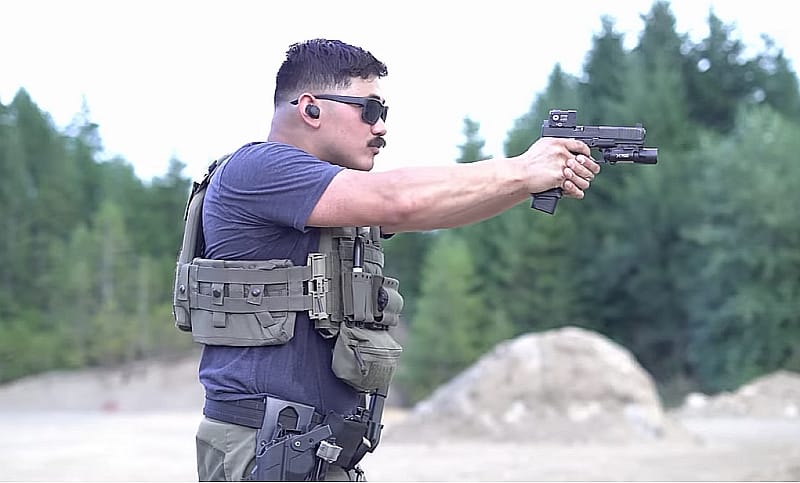
Much of the less-than-ideal training can be attributed to budgetary factors made worse by the ill-conceived “defund the police” movement. Agencies simply don’t possess the ammo budget to have cops train properly. If they want extra training, they have to pay for it themselves. Jeremy notes that many departments require cops to provide their own patrol rifle if they want to roll with one. Mojo says he is very fortunate that his agency provides them with some great weapons.
Back to Training
Jeremy returns to his range session and says he enjoyed it because he felt like he learned something and got better. He asks Mojo what he thinks is the best way to know what you’re not good at. He then answers his own question by saying it’s shooting with other people. Mojo agrees and says that shooting on camera helps too.
Those things force you to home in on individual skills to learn where you’re lacking. Mojo says you have to get comfortable with being uncomfortable, meaning you have to accept that you need improvement and be able to accept and learn from constructive criticism. You have to lose your ego to get better. He has hundreds of video hours that he watches, trying to see what he can do better.
Mojo Doesn’t Shoot Competitively…Yet
Jeremy asks Mojo about shooting competitively, to which Mojo replies that he hasn’t done it seriously. He did shoot a couple of matches, in which he did very well using a stock rifle and a Beretta M9A1 against guys with custom rigs.
Mojo says that he probably should compete, despite some law enforcement criticisms that competition is “gaming” and doesn’t translate to the real world. Mojo says he used to buy into that but has changed his mind. He says he constantly games scenarios at work, whether it’s pre-staging a vehicle or a weapon if he thinks something is about to go down.
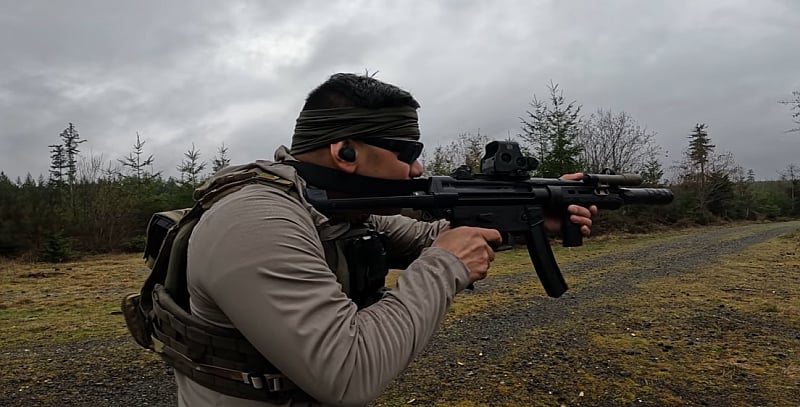
Jeremy notes that certain skills from competition, like a fast draw, absolutely translate well, though some competition habits, like always pointing the muzzle downrange, can hinder real-life performance. Mojo says that, so far, he hasn’t been interested in competing because he has more fun training with his friends. “As long as you’re having fun, “he says, “that’s all that matters. If you have fun, you’re gonna learn.”
Airsoft Training
Jeremy compares competition shooting to Airsoft. Some things translate and some things don’t. He then says that Airsoft is “fun on a grand scale.” Mojo concurs. He and his friends play Airsoft, not only because it’s fun, but it also contributes to physical fitness and team building. They learn tactical team communication from Airsoft. The Airsoft environment provides the context within which skills can be practiced and applied.
It’s also a great way to test gear, whether it be optics, lights, or any other gear you might run. Mojo says that he and his boys run their actual cop gear when they do the Airsoft thing, including armor. He learned that he doesn’t like magazines on his chest rig’s front because it hinders him when he goes prone. He does note that Airsoft stuff ain’t cheap. It’s come a long way from its beginnings.
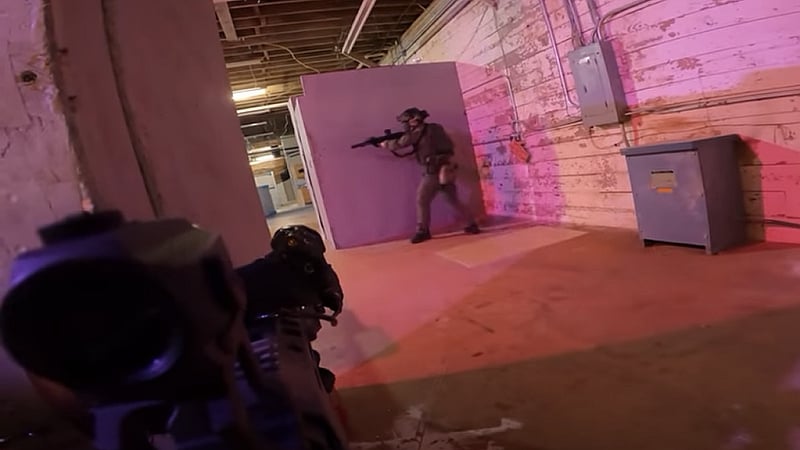
Becoming a Sniper
Mojo recently qualified as a police sniper. He uses a built-out Remington 700 with a chassis setup. He talks about what he learned in the sniper course in a good discussion of the training and its continuing benefits.
He puts a lot of effort into being able to run whatever gun he has at a high level, including his bolt gun. He doesn’t want to be the guy who has been to all the schools or been in combat but can’t actually run a gun. You can have training and experience, but you still have to put in the work to benefit from it. A good discussion of shooting fundamentals follows, including fast bolt gun operations. Mojo surprisingly says that the bolt gun might be his favorite weapon.
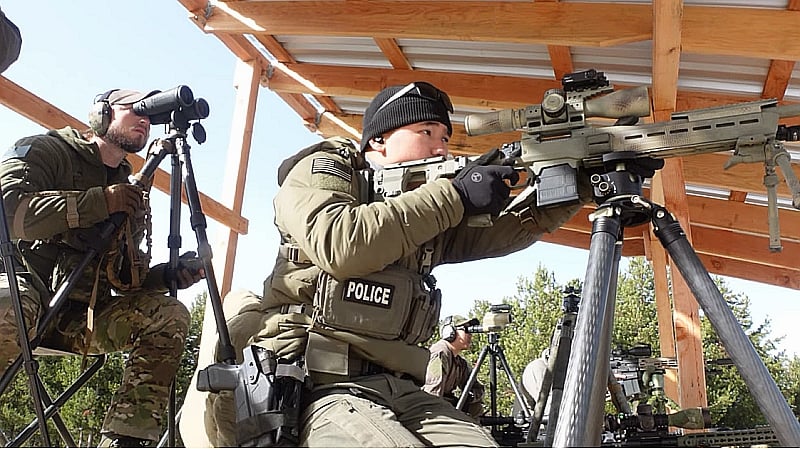
He also says that, even if you have a long-range weapon like his sniper rifle, don’t scoff at practicing at closer distances. Mastering the fundamentals at 100 yards or 7 yards with a pistol allows you to build on that as ranges increase.
Genesis of a Name
Mojo says his nickname comes from two places. First, the “Milspec” part comes from wanting to run standard equipment as well as, or better than, other people who run custom weapons and accessories. Hence the good performance with the Beretta and the basic rifle. He has nothing against upgrades, and has a couple himself, but he wants to be able to run whatever he has at a high level without depending on them.
He picked up the nickname “Mojo” in the Marine Corps and he relates that story. Turns out the combination works, even if it took a few name changes to get the handle right. This is a very informative and entertaining podcast. Do yourself a favor and listen to the whole thing. You’ll probably learn something.
Podcast: Play in new window | Download


